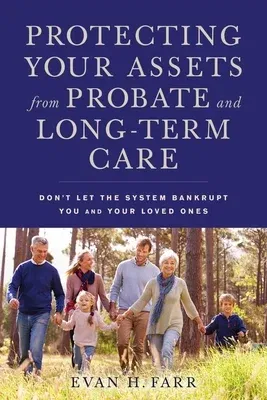Evan H. Farr is a lawyer with expertise in asset protection and
related topic. Let him, in plain language, explain the need to consider
both probate and the expenses of long-term care when you create a living
trust.
Have you ever considered the advantages of creating a living trust?
Avoiding probate through the use of living trusts is a well-known
solution, but author Evan H. Farr takes this issue one step further.
A revocable living trust, the main tool used for protecting your assets
from probate, does not protect assets from the catastrophic expenses
of long-term care. A very useful and popular estate planning tool,
revocable living trusts are recommended by tens of thousands of
attorneys across the United States and are used as the central estate
planning document by millions of Americans. However, what most Americans
don't realize is that assets in such a trust are not protected from
lawsuits or from the limitless expenses associated with nursing homes or
long-term care.
In order to help readers protect themselves from both probate and
long-term care, Farr delves into the many details you should know when
creating a living trust. He also outlines his Living Trust Plus(TM)
Asset Protection Trust, which is the only type of self-created asset
protection trust that allows you to avoid probate and retain an
interest in the trust while also protecting the assets from being
counted by state Medicaid agencies. He details the process of avoiding
probate and securing assets, including:
Joint ownership problems
Special needs planning
How to pay for the nursing home
Why Medicaid planning is ethical
The ten most common Medicaid myths
Finding the right lawyer
Protecting Your Assets from Probate and Long-Term Care will help to
ensure your family does not have to reap the consequences (and expenses)
of improperly creating a living trust.

